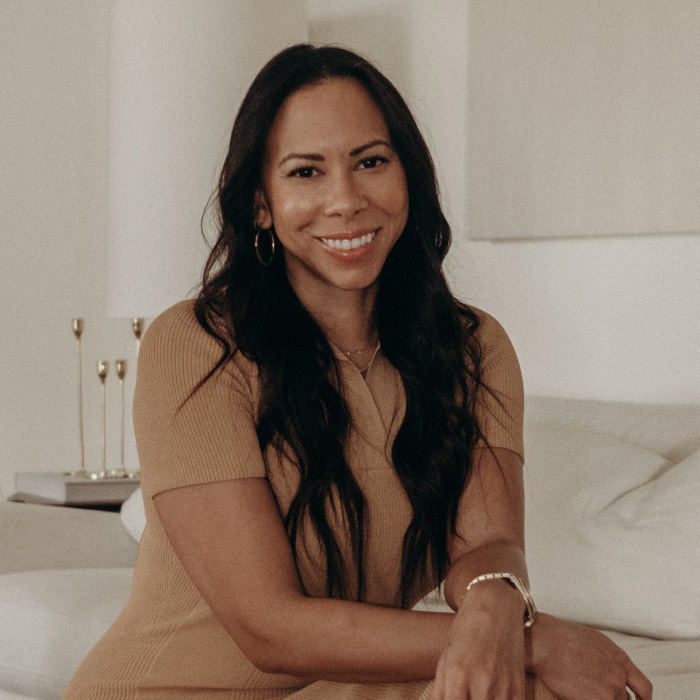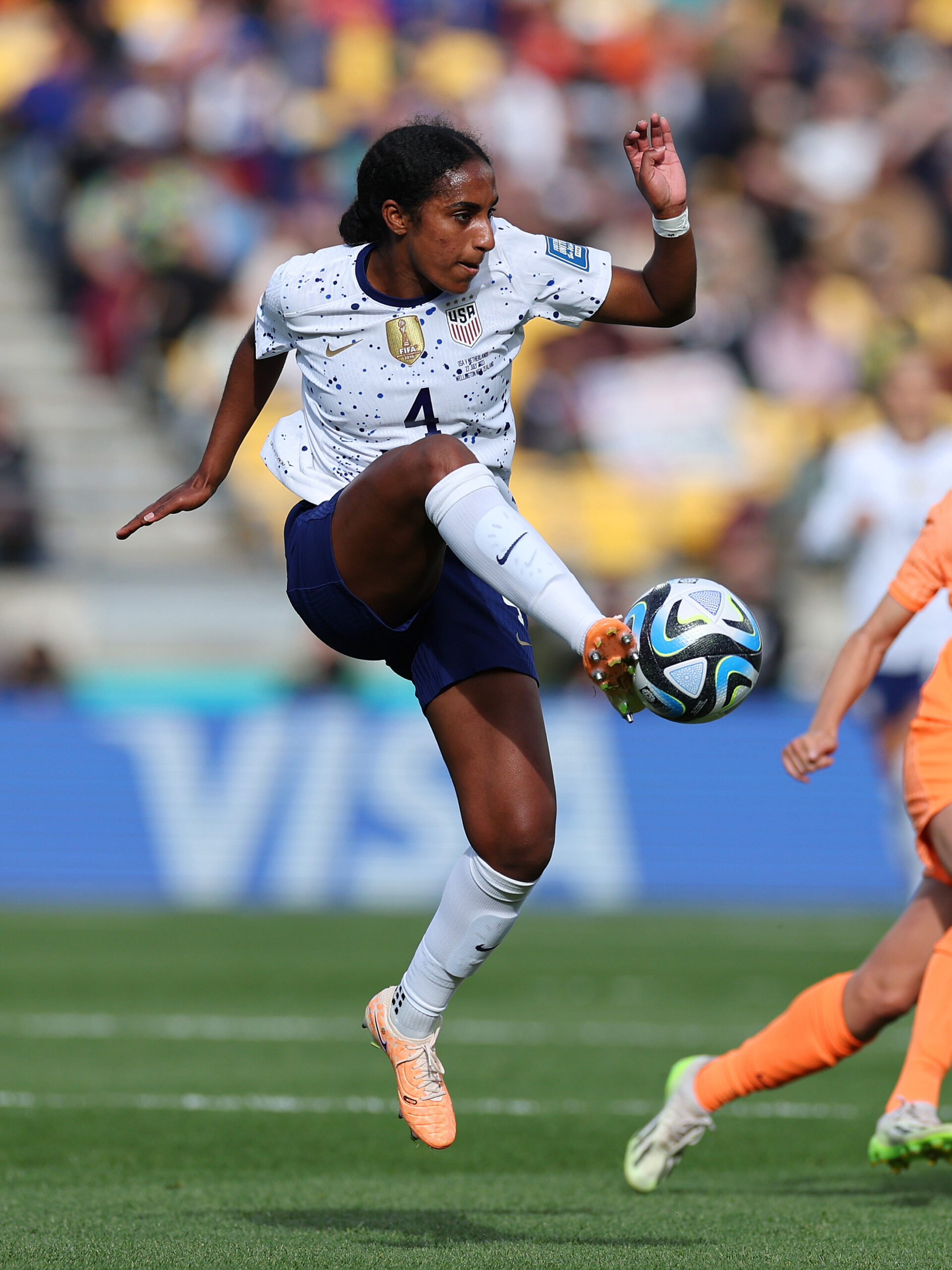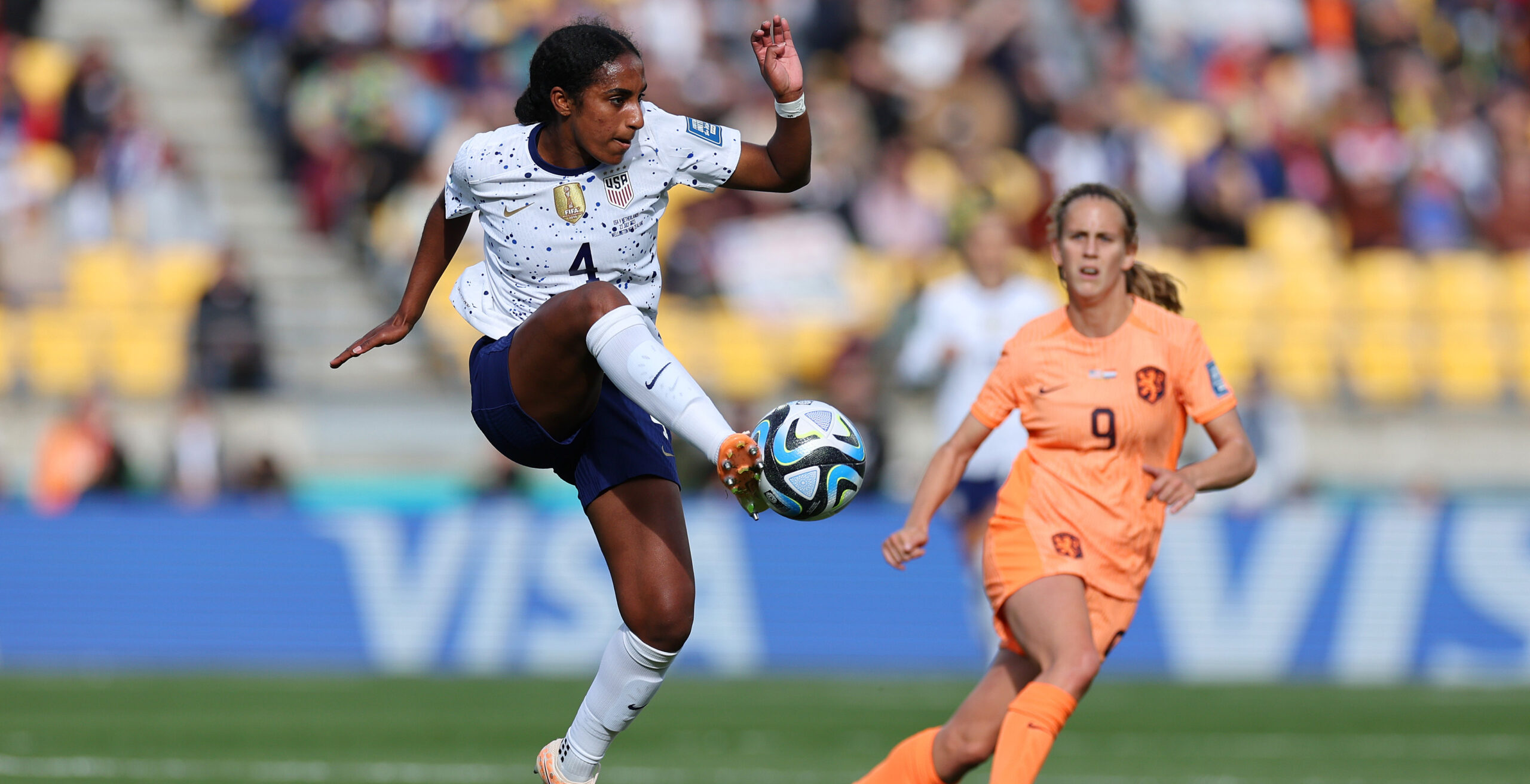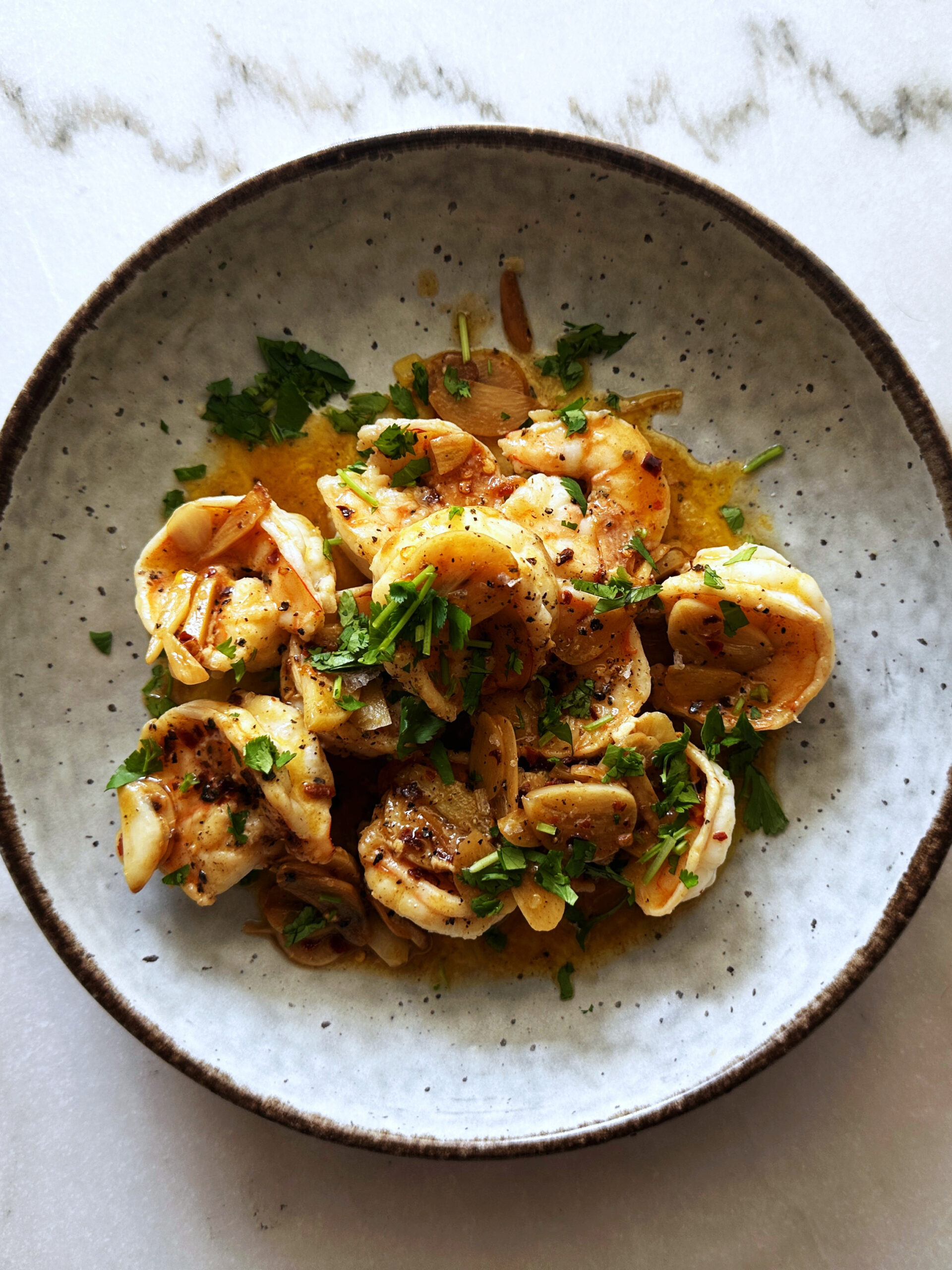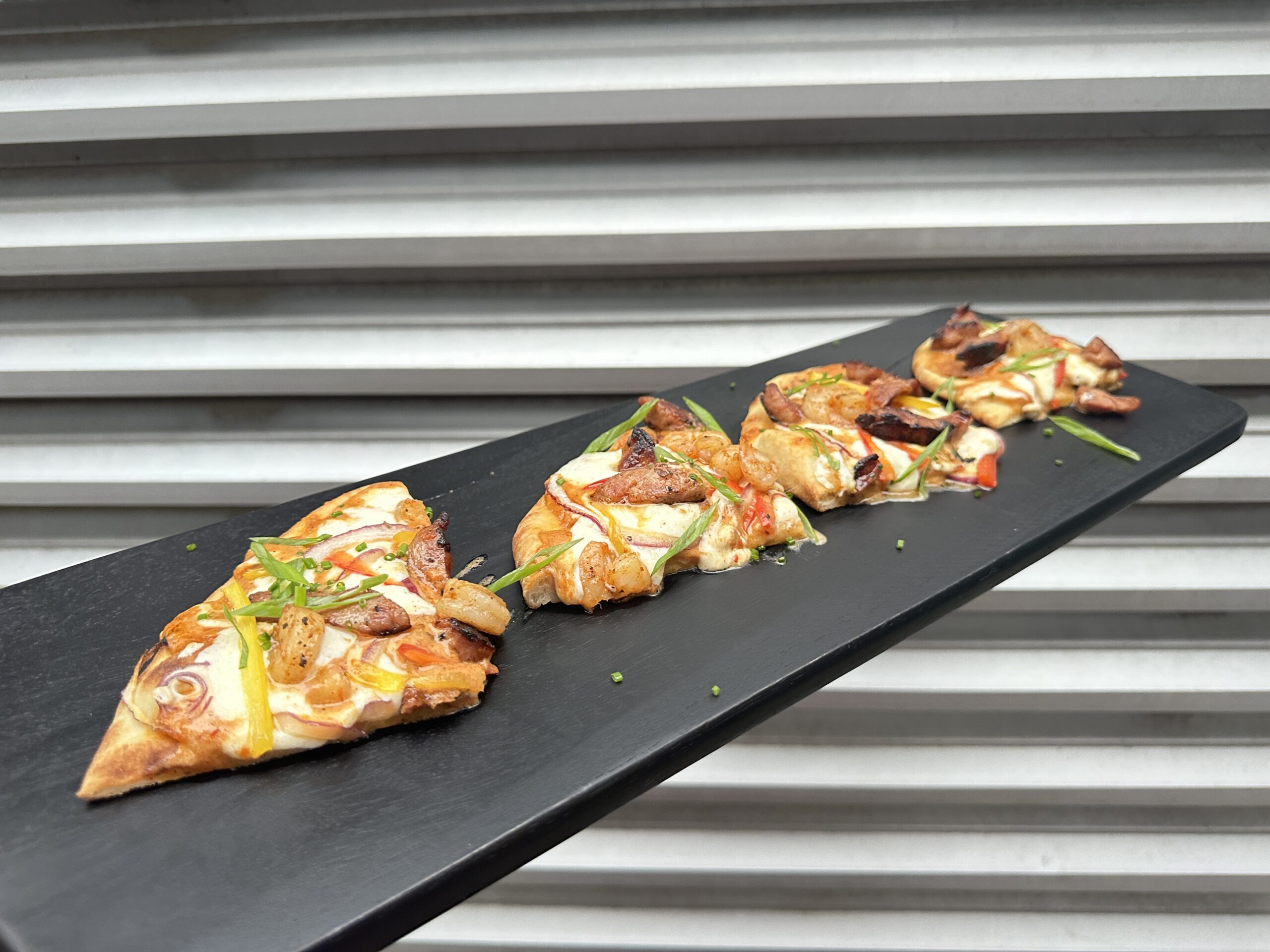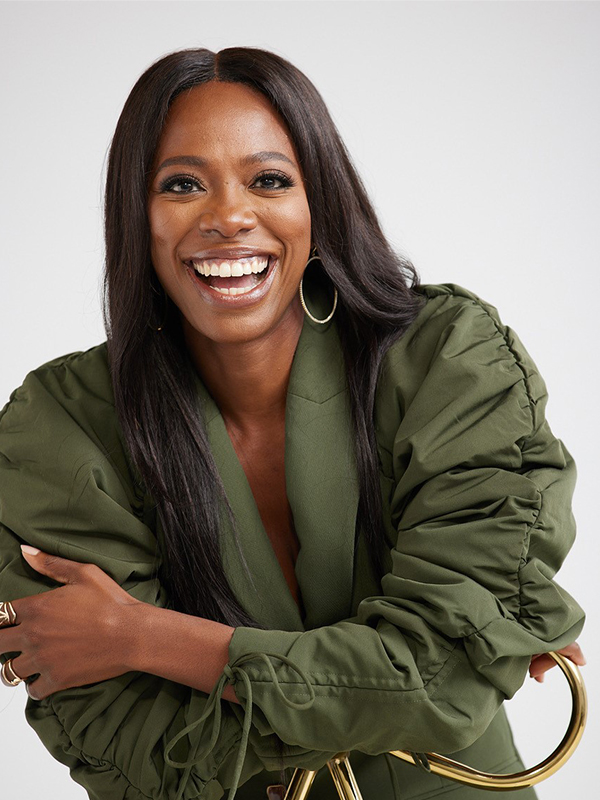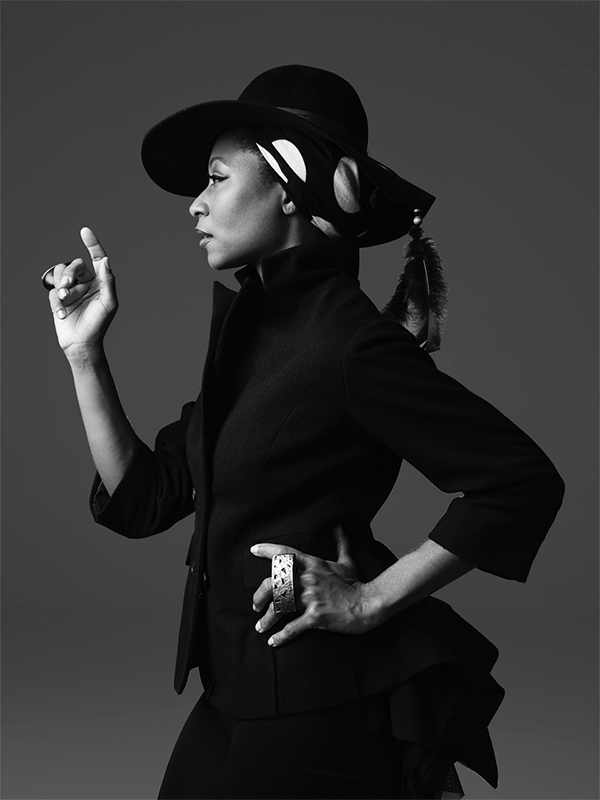As I sit down to chat with Naomi Girma at her hotel in Cincinnati, Ohio, I’m immediately struck by her warm and bubbly personality. It’s like catching up with an old friend. Just days later, it’s a different version of Girma I see—the version that’s locked-in and focused on the soccer field as she helps the U.S. Women’s National Team (USWNT) achieve a 3-0 victory over South Africa in a friendly match.
The San Jose, California native, who made her World Cup debut this past summer, makes quite the impact, both on and off the field. Not only is the defensive player the first Ethiopian American on the USWNT and the National Women’s Soccer League (NWSL) as part of the San Diego Wave, Girma is also using her platform to be an advocate for mental health.
Prior to the start of the World Cup in July, Girma penned a heartfelt essay in honor of her best friend and fellow Stanford University teammate, Katie Meyer, who passed away due to suicide in March of 2022. Her sudden passing inspired Girma to partner with Common Goal on a new mental health initiative, with support from fellow teammates Sophia Smith and Sofia Huerta, and the USWNT.
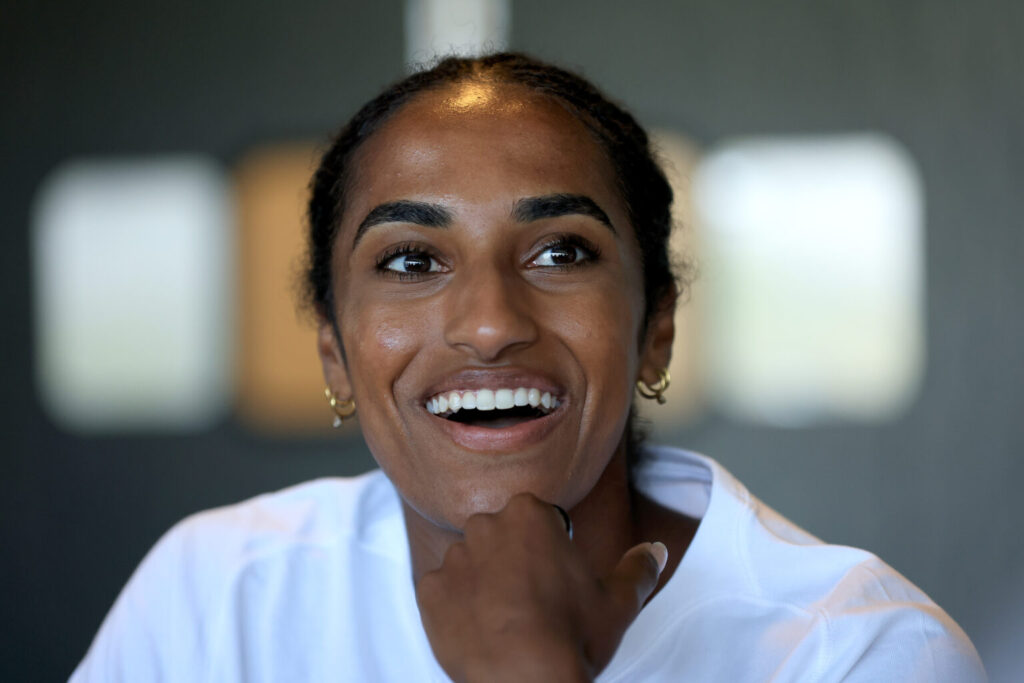
Girma’s mission is to ensure soccer athletes have the tools to take care of their mental well-being. The two-part program (made possible by FOX Sports, FOX Corporation and support from Women in Soccer) will educate youth coaches from under-resourced communities on how to help players grappling with stress, anxiety, depression and loneliness. The initiative will also train select NWSL athletes on how to be mental health champions for their respective teams. As September, which is recognized as National Suicide Prevention Awareness Month, draws to a close, Girma chatted with Sweet July about the next steps for her Common Goal program, the importance of community, the impact of representation and her own future plans.
How did your partnership with Common Goal come about and where do you see it going?
When do you hope the workshops will start?
As you progress in your career, how do you take care of your own mental health?
NG: Going to therapy. Having access to it is a privilege, so that’s something I am grateful for. Also making sure I am taking care of myself as a person outside of just taking care of my body as an athlete. So doing things that bring me joy, like spending time with family and friends, reading, and journaling. I also recently tried painting. Just doing little things outside of soccer that help keep me balanced.
Your parents both immigrated from Ethiopia to the U.S. as teenagers and your father started an Ethiopian youth soccer group, Maleda Soccer Club, in the Bay Area when you were younger. How was it having that support system throughout your career and how did it nurture you as a person?
NG: That group was where I first started playing soccer, so I feel like I grew up in that community. I think the great thing about having a community like that is that their love and support isn’t based off of results or success; it’s unconditional. I think having their support from the beginning made soccer feel fun. As I’ve continued to progress, they’re always there cheering me on. Our sendoff game for the World Cup was in San Jose and it was really cool to see all of them there. They have always been the village that’s helped me thrive.
How does it feel for you to be the first player of Ethiopian descent to play in the USWNT and NWSL?
NG: It’s very special hearing from other people how they felt inspired and represented. It makes me proud that I can be out there representing my family and the community that helped me get here.



